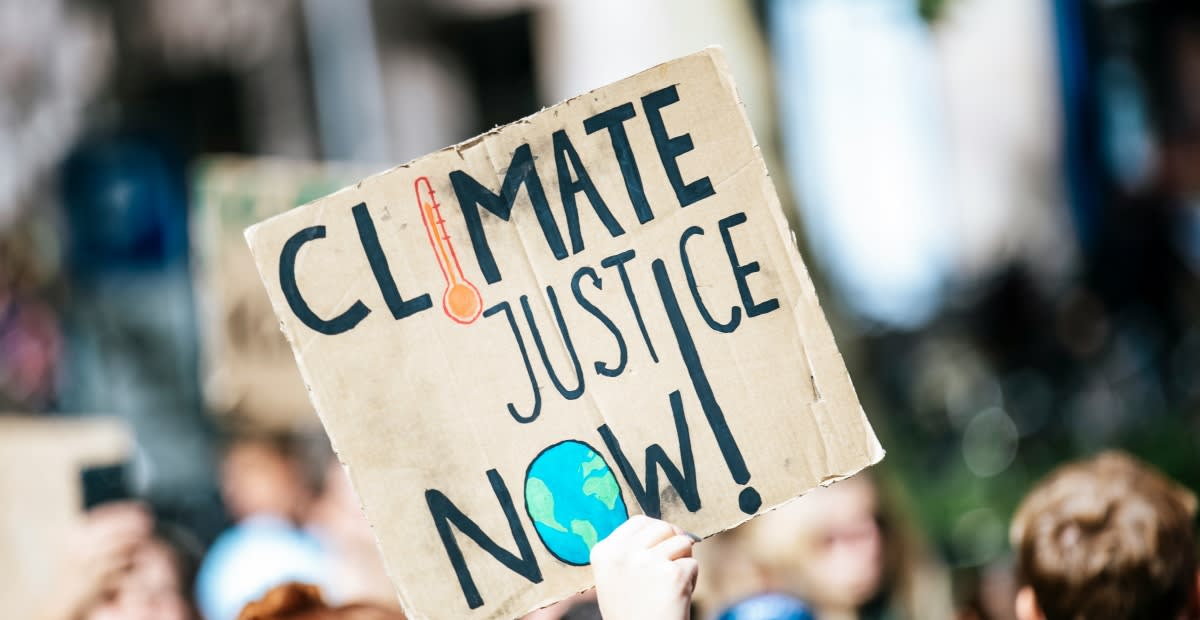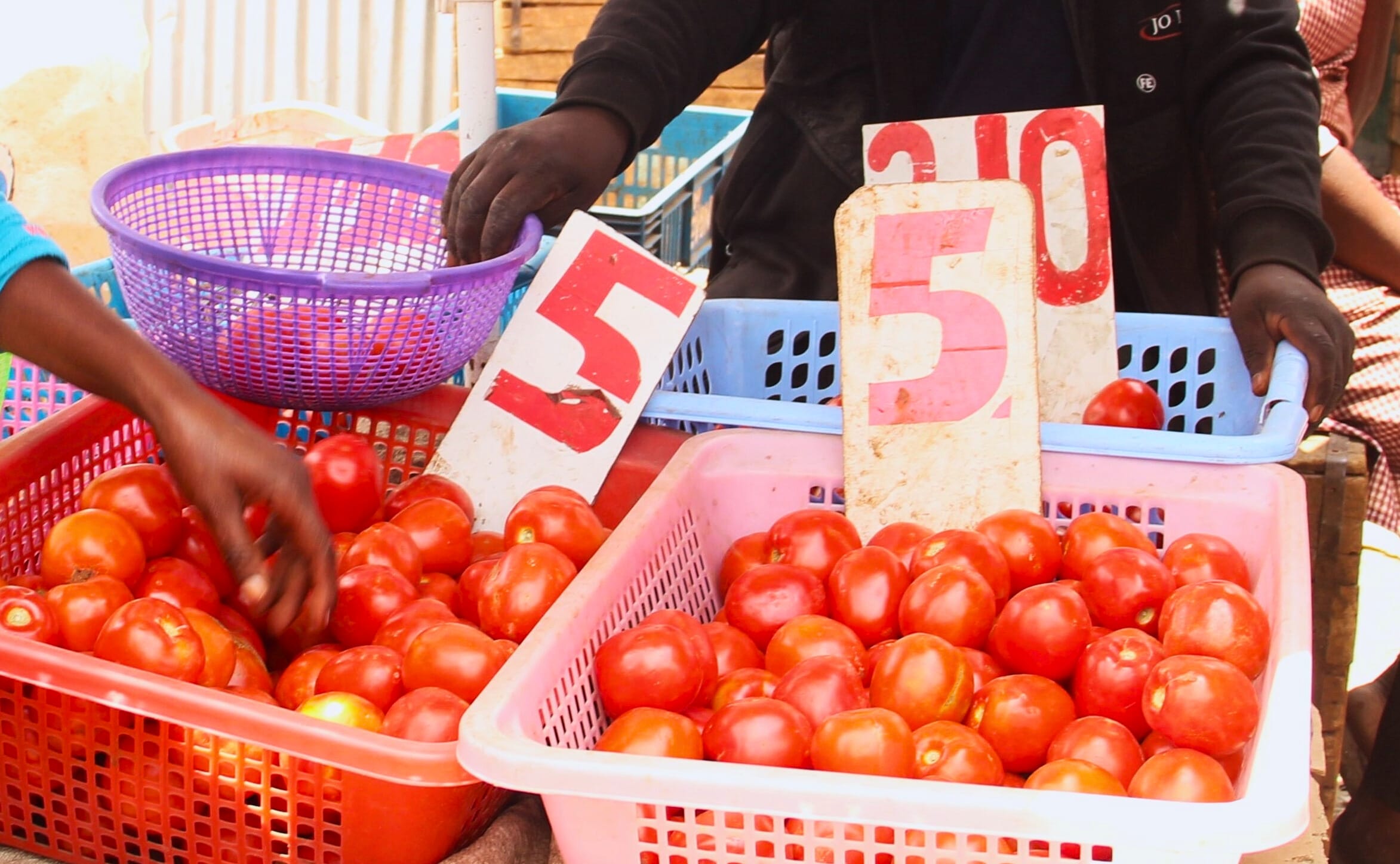No land rights? No climate justice
Indigenous Peoples and local communities face uncertainty as climate change initiatives place them in jeopardy. Ensuring their tenure rights are key to achieving a climate-just future
by Jes Weigelt | 2024-04-16

The world seems ablaze. This March tore through records as the hottest March on record since 1940. Sweltering heatwaves scorched East Africa, with temperatures soaring to 45 C and upending life in South Sudan. Malawi, Zambia and Zimbabwe have declared national emergencies due to drought.
These droughts follow severe flooding in parts of Eastern and Southern Africa. What's more: a recent report suggests that El Niño events could bring on increased drought, break temperature records, and fuel more wildfires. It moreover forecasts a 90% chance that global average surface temperatures will reach record levels in June 2024.
The findings from the Intergovernmental Panel on Climate Change are clear: these climate shocks do not affect everyone the same way. The groups most vulnerable to climate change are also often the least responsible for it, and have already begun to bear the most severe impacts.
As hotter weather patterns oblige a new green wave of transformation, we are often left to wonder: where can we turn for inspiration? Into which actions can we invest to achieve climate justice? For TMG Research, we look to the land: one of the world’s most precious resources. More importantly, we turn to the people living on it. Their rights are key to achieving climate resilience.
What’s at stake
Wherever you get your news, you will have come across the global quest to harness the benefits of land and forests to drive climate action. Indeed, planting a tree and protecting forests have become synonymous with it. It’s no doubt that storing carbon in trees and the world’s ecosystems more broadly are viable solutions to removing carbon dioxide from the air.
But ecosystem restoration efforts that aim to protect the climate often forget one important thing: lands and forests are not empty places. They are home to Indigenous Peoples and local communities. Without magnifying their contribution to healthy ecosystems and climate adaptation efforts, as well as protecting their place within them, these communities face displacement, human rights abuses and suffering. Importantly, ignoring land stewards’ value will very likely render land and forest protection ineffective.
The question of how to blend land rights recognition with land and forest protection and restoration is not new. It’s advocated for by local communities and grassroots organizations and echoed in the halls of global agencies. And yet, due to the highly fragmented and siloed nature of global policy processes the crucial importance of secure land rights for Indigenous Peoples and local communities have not been systematically reflected in the global negotiations on climate and biodiversity protection.
The failure to recognize the value of land rights as a pillar of climate justice carries huge risks for local communities. Especially since access to land and other natural resources are the foundation of their livelihoods. The right to the little plots they call their own is often what keeps them from moving into destitution or chronic poverty, being forced to migrate, and losing their heritage wed to the land.
Women’s land rights are of particular importance. Not only are their rights often in even higher need for protection, but women are also more likely to invest the returns of the land into the wellbeing of the household.
Carrying the land rights torch to the policy arena
Over the next few months, TMG Research is working in lockstep with grassroots and global organizations, so that securing land rights for climate resilience become a reality. Up to June, we will present our work on land rights at the World Bank Land Conference 2024 and co-host a meeting of our strategic initiative on Women’s Land Rights and the Rio Conventions with the Robert Bosch Foundation. During these events, we join a collection of voices in taking on time-critical questions, such as: what do land rights mean for intergenerational justice? What climate justice strategies enable better and fairer management of scarce resources? Which leverageable synergies can enhance coordination efforts across the three Rio Conventions? And what is needed to form a joint initiative to eliminate challenges and barriers in advancing a women’s land rights agenda under the Rio Conventions?
In June, we will also celebrate the 30th anniversary of the United Nations Convention to Combat Desertification. At the past two Conferences of the Parties, parties adopted landmark decisions on land tenure and its links to sustainable land management and land restoration.
When I look forward, I have one wish for the next 30 years of the convention: that its role in the governance of our precious and essential resource – land – is strengthened further. That it becomes a space where concrete actions are carved out, agreed to and implemented to the benefit of communities living on and stewarding the land. Collectively, we have the knowledge to steer the necessary change – now. But we must have the guts to craft the necessary alliances and policies to make it happen.
 Land GovernanceDec 18, 2025
Land GovernanceDec 18, 2025Land tenure, women’s land rights, and resilience: Reflections from CRIC23 toward UNCCD COP17
Our experts discuss what the exchanges at CRIC23 highlighted and revealed about the role of secure and gender-equitable land tenure in the UNCCD's work ahead of the 2026 triple COP year.
Frederike Klümper, Washe Kazungu
 Urban Food FuturesDec 09, 2025
Urban Food FuturesDec 09, 2025The story of Mukuru's Urban Nutrition Hub
In Mukuru informal settlement, a safe haven for women has grown into the Urban Nutrition Hub, a multi-purpose space for nutrition education, training, and community development, demonstrating the potential of grassroots community-owned innovation..
Serah Kiragu-Wissler
 Urban Food FuturesSep 29, 2025
Urban Food FuturesSep 29, 2025Cheaper food, higher costs: The paradox of Nairobi’s food systems
What are the hidden costs of foods sold in Nairobi's informal markets, and who must bear them? We discuss how the city could build food systems that are both affordable and fair—for consumers and the people who feed them.
Christian Sonntag, Emmanuel Atamba, Lumi Youm

